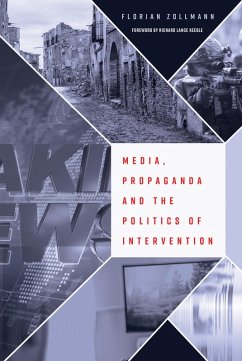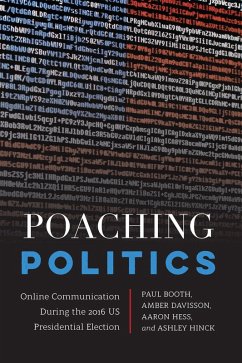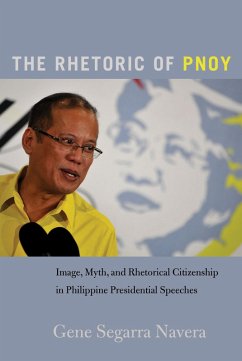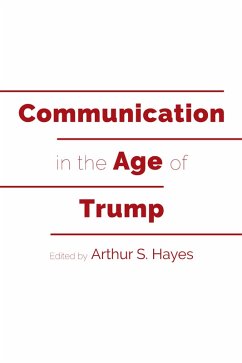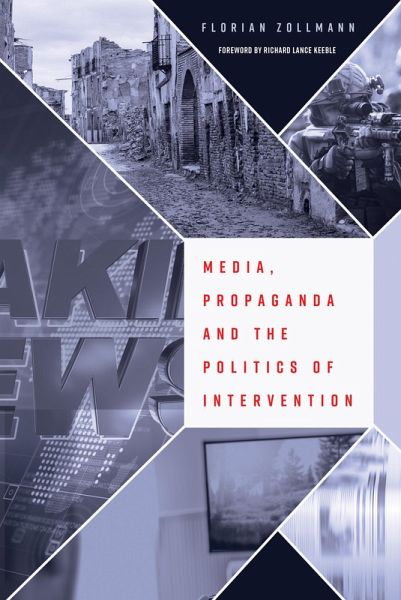
Media, Propaganda and the Politics of Intervention (eBook, ePUB)
Versandkostenfrei!
Sofort per Download lieferbar
Statt: 113,45 €**
88,95 €
inkl. MwSt.
**Preis der gedruckten Ausgabe (Gebundenes Buch)
Alle Infos zum eBook verschenkenWeitere Ausgaben:

PAYBACK Punkte
44 °P sammeln!
Prominent media scholars have argued that the dissemination of propaganda is an important function of the news media. Yet, despite public controversies about 'fake news' and 'misinformation', there has been very little discussion on techniques of propaganda. Building on critical theory, most notably Herman and Chomsky's Propaganda Model, Florian Zollmann's pioneering study brings propaganda back to the forefront of the debate. On the basis of a forensic examination of 1,911 newspaper articles, Zollmann investigates US, UK and German media reporting of the military operations in Kosovo, Iraq, L...
Prominent media scholars have argued that the dissemination of propaganda is an important function of the news media. Yet, despite public controversies about 'fake news' and 'misinformation', there has been very little discussion on techniques of propaganda. Building on critical theory, most notably Herman and Chomsky's Propaganda Model, Florian Zollmann's pioneering study brings propaganda back to the forefront of the debate. On the basis of a forensic examination of 1,911 newspaper articles, Zollmann investigates US, UK and German media reporting of the military operations in Kosovo, Iraq, Libya, Syria and Egypt. The book demonstrates how 'humanitarian intervention' and 'R2P' are only evoked in the news media if so called 'enemy' countries of Western states are the perpetrators of human rights violations. Zollmann's work evidences that the news media plays a crucial propaganda role in facilitating a selective process of shaming during the build-up towards military interventions. This process has led to an erosion of internationally agreed norms of non-intervention, as enshrined in the UN Charter.
Dieser Download kann aus rechtlichen Gründen nur mit Rechnungsadresse in A, D ausgeliefert werden.




